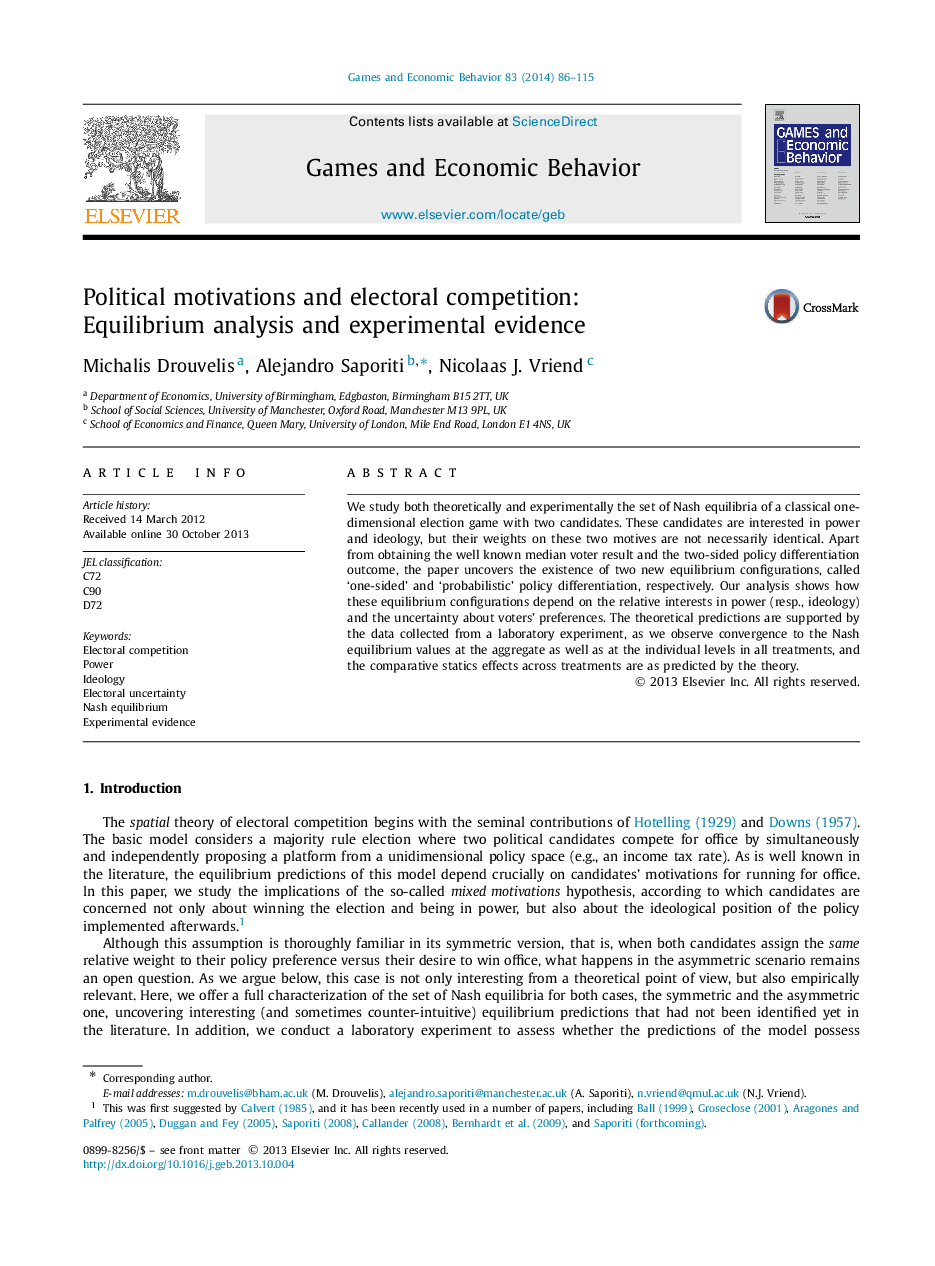| Article ID | Journal | Published Year | Pages | File Type |
|---|---|---|---|---|
| 5071895 | Games and Economic Behavior | 2014 | 30 Pages |
We study both theoretically and experimentally the set of Nash equilibria of a classical one-dimensional election game with two candidates. These candidates are interested in power and ideology, but their weights on these two motives are not necessarily identical. Apart from obtaining the well known median voter result and the two-sided policy differentiation outcome, the paper uncovers the existence of two new equilibrium configurations, called 'one-sided' and 'probabilistic' policy differentiation, respectively. Our analysis shows how these equilibrium configurations depend on the relative interests in power (resp., ideology) and the uncertainty about votersʼ preferences. The theoretical predictions are supported by the data collected from a laboratory experiment, as we observe convergence to the Nash equilibrium values at the aggregate as well as at the individual levels in all treatments, and the comparative statics effects across treatments are as predicted by the theory.
